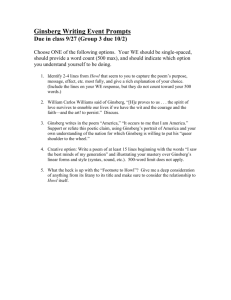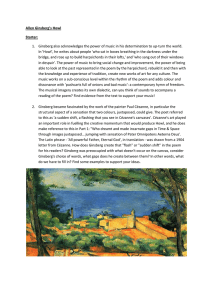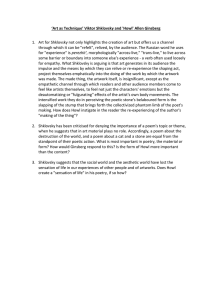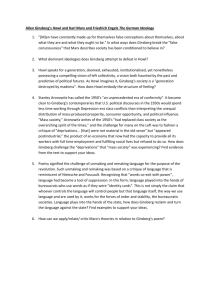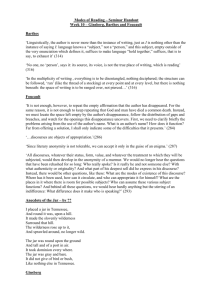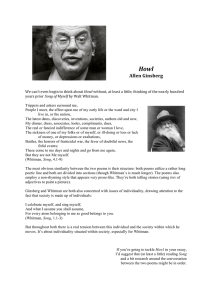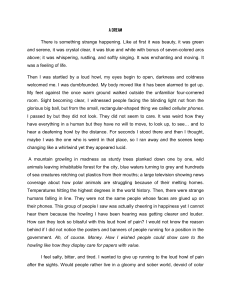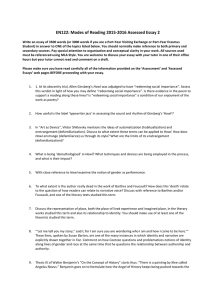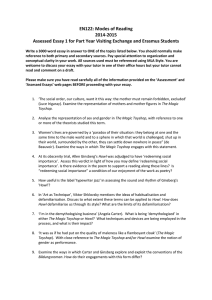Howl
advertisement
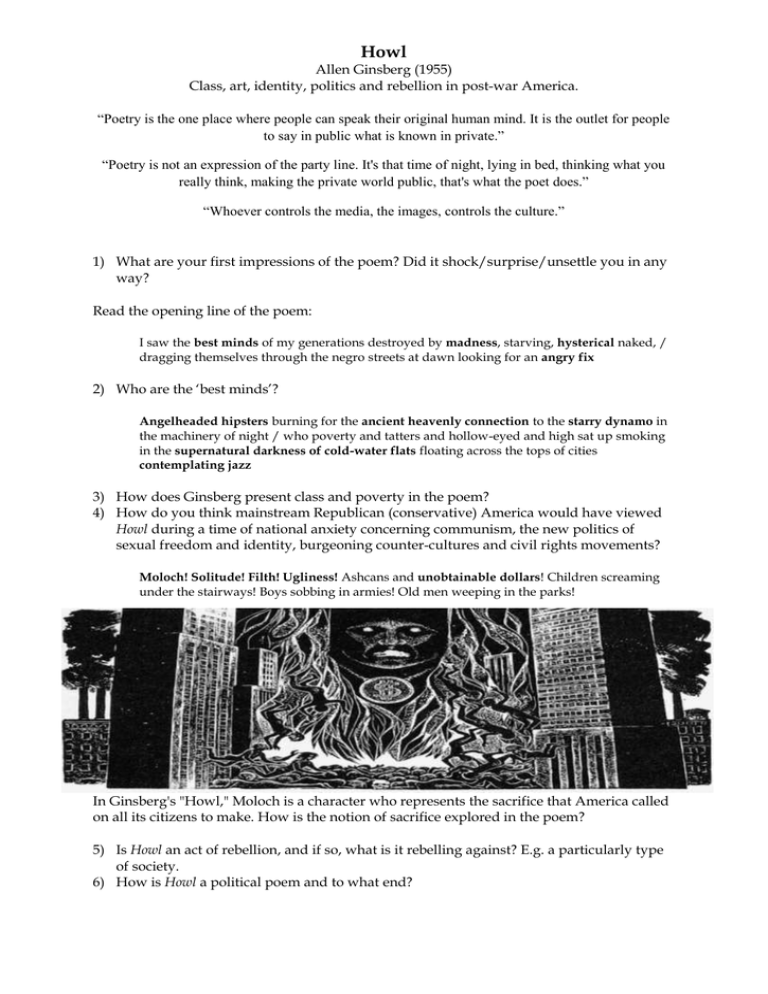
Howl Allen Ginsberg (1955) Class, art, identity, politics and rebellion in post-war America. “Poetry is the one place where people can speak their original human mind. It is the outlet for people to say in public what is known in private.” “Poetry is not an expression of the party line. It's that time of night, lying in bed, thinking what you really think, making the private world public, that's what the poet does.” “Whoever controls the media, the images, controls the culture.” 1) What are your first impressions of the poem? Did it shock/surprise/unsettle you in any way? Read the opening line of the poem: I saw the best minds of my generations destroyed by madness, starving, hysterical naked, / dragging themselves through the negro streets at dawn looking for an angry fix 2) Who are the ‘best minds’? Angelheaded hipsters burning for the ancient heavenly connection to the starry dynamo in the machinery of night / who poverty and tatters and hollow-eyed and high sat up smoking in the supernatural darkness of cold-water flats floating across the tops of cities contemplating jazz 3) How does Ginsberg present class and poverty in the poem? 4) How do you think mainstream Republican (conservative) America would have viewed Howl during a time of national anxiety concerning communism, the new politics of sexual freedom and identity, burgeoning counter-cultures and civil rights movements? Moloch! Solitude! Filth! Ugliness! Ashcans and unobtainable dollars! Children screaming under the stairways! Boys sobbing in armies! Old men weeping in the parks! In Ginsberg's "Howl," Moloch is a character who represents the sacrifice that America called on all its citizens to make. How is the notion of sacrifice explored in the poem? 5) Is Howl an act of rebellion, and if so, what is it rebelling against? E.g. a particularly type of society. 6) How is Howl a political poem and to what end? Ginsberg explores the idea of patriotism, nationalism and state control over individual freedoms and creativity. In his poem America he writes: America this is quite serious. / America this is the impression I get from looking in the television set. / America is this correct? / I'd better get right down to the job. / It's true I don't want to join the Army or turn lathes in precision parts / factories, I'm nearsighted and psychopathic anyway. / America I'm putting my queer shoulder to the wheel. 7) How does Ginsberg engage with the question of American identity in Howl?
